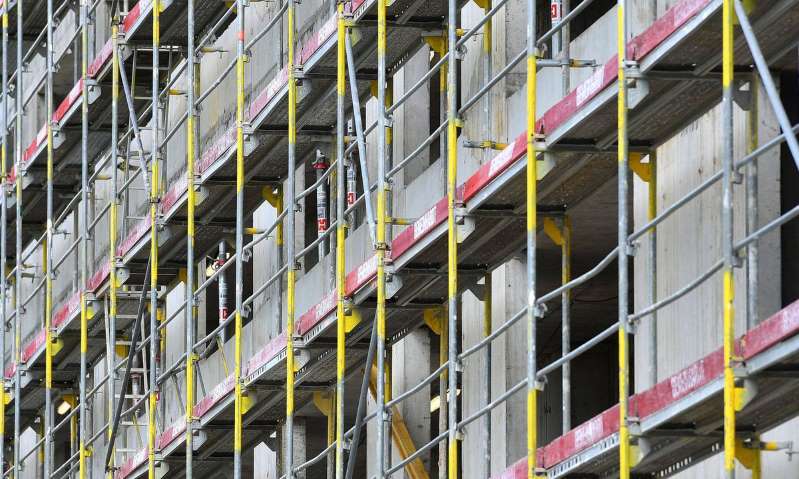
Vienna . Christian Klinger frankly admits that his approach is not “entirely unselfish”. Klinger is the owner and company spokesman for IFN Holding, to which the window manufacturer Internorm belongs. The family company in Mühlviertel in Upper Austria employs almost 3750 people.
“But the facts speak for themselves,” says Klinger. Because more than a third of greenhouse gas emissions in Europe come from buildings. While industry and transport are at the center of the climate debate, the area of housing is hardly discussed.
However, the ambitious climate targets of minus 55 percent of greenhouse gas emissions by 2030 will not be achieved if one no longer invests in thermal renovation, emphasizes Christian Klinger.
“In the year 2030 the accounts will be billed,” he said in an interview with the “press” and recalled the billions in fines that would be incurred if Austria should not achieve the goals. The subsidies for thermal refurbishment would “only make up a fraction of the potential for fines”.
“The thing pays for itself,” says Klinger. In Austria, according to figures from the Environment Ministry, 27 percent of energy consumption is used for space heating, hot water and – increasingly important – for cooling buildings. 88 percent of emissions come from private households. “With a refurbishment you can save three quarters of emissions,” says Klinger.
In the previous year, as part of the economic stimulus package, the government also passed a 750 million euro package for renovations and heating changes for 2021 and 2022.
Low renovation rate
In Austria there are 2.5 million residential units that could be refurbished. In the past few years, the renovation rate was only one percent, emphasizes IFN Holding boss Klinger. Refurbishment projects are counted in which there is a reduction in CO2 emissions of at least 60 percent. Across the EU, the renovation rate is a meager 0.2 percent.
Funding is only effective if it is “easily accessible”, emphasizes Klinger. Uniform funding models are also to be welcomed. The subsidies currently differ from state to state, which creates additional bureaucratic hurdles for companies. The entrepreneur believes that “target group-specific funding” is important. Not only the wealthy may benefit from the subsidies. Large parts of the population are often excluded. Klinger can therefore imagine a “direct subsidy and a negative tax for low-wage earners”. In the area of rental apartments, too, additional incentives, such as tax incentives, could increase the willingness to renovate.
It is also important to pay more attention not only to heating, but also to the cooling of buildings. Climate change means that, for example, “intelligent shading systems” for buildings can increasingly contribute to energy efficiency. The increase in living comfort and healthy living – keyword home office – will become increasingly important. (gh)

